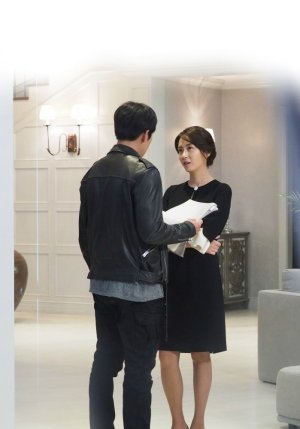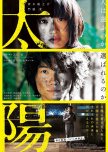Deze recentie kan spoilers bevatten
Fun and fascinating, occasionally thrilling, and ultimately invigorating.
Yu Irie directs a talented cast led by Ryunosuke Kamiki (As the Gods Will, BAKUMAN) in this quietly riveting, suspenseful drama about humanity at the brink of desperation. Challenging to watch at times, The Sun is not afraid to explore the tensions and inhibitions of a society at breaking point.
The world building and characterisation are superb and never feel heavy-handed. We’re exploring some familiar allegories, but the Japanese setting produces a fresh take on the traditional versus technological. The Nox are productive and technologically capable, yet they are more rigid and emotionless. Despite their smiles they seem almost brainwashed. On the other hand the Curios live in quaint Japanese countryside towns abundant in nature and steeped in tradition. They live in a more natural world, and the only negative influence on their way of life happens to be the bureaucratic hold of those who’ve taken power for their own.
The technical side of the production is equally flawless, and oftentimes the cinematography is breathtaking. One scene in particular pulls out all the stops, a one shot which utilises every element of filmmaking to progress the story and tie together a number of narrative threads in a seamless and thrilling way. Tetsuhiko’s uncle returns to the village years after murdering a Nox guard, tainting the name of the village and making its people a target for the dominant group. At the same time Tetsuhiko arrives home with a wounded Nox, a young man he’s been befriending as he plans to enter the lottery. It’s hard to describe without spoilers, but as the two threads clash we see character blocking, camera movement, framing, quadrants and planes all employed pitch-perfectly. It’s cinematic magic.
The Sun delivers as a gripping and relatable story with a post-apocalyptic sci-fi flavour. Fun and fascinating, occasionally thrilling, and ultimately invigorating.
The world building and characterisation are superb and never feel heavy-handed. We’re exploring some familiar allegories, but the Japanese setting produces a fresh take on the traditional versus technological. The Nox are productive and technologically capable, yet they are more rigid and emotionless. Despite their smiles they seem almost brainwashed. On the other hand the Curios live in quaint Japanese countryside towns abundant in nature and steeped in tradition. They live in a more natural world, and the only negative influence on their way of life happens to be the bureaucratic hold of those who’ve taken power for their own.
The technical side of the production is equally flawless, and oftentimes the cinematography is breathtaking. One scene in particular pulls out all the stops, a one shot which utilises every element of filmmaking to progress the story and tie together a number of narrative threads in a seamless and thrilling way. Tetsuhiko’s uncle returns to the village years after murdering a Nox guard, tainting the name of the village and making its people a target for the dominant group. At the same time Tetsuhiko arrives home with a wounded Nox, a young man he’s been befriending as he plans to enter the lottery. It’s hard to describe without spoilers, but as the two threads clash we see character blocking, camera movement, framing, quadrants and planes all employed pitch-perfectly. It’s cinematic magic.
The Sun delivers as a gripping and relatable story with a post-apocalyptic sci-fi flavour. Fun and fascinating, occasionally thrilling, and ultimately invigorating.
Vond je deze recentie nuttig?











